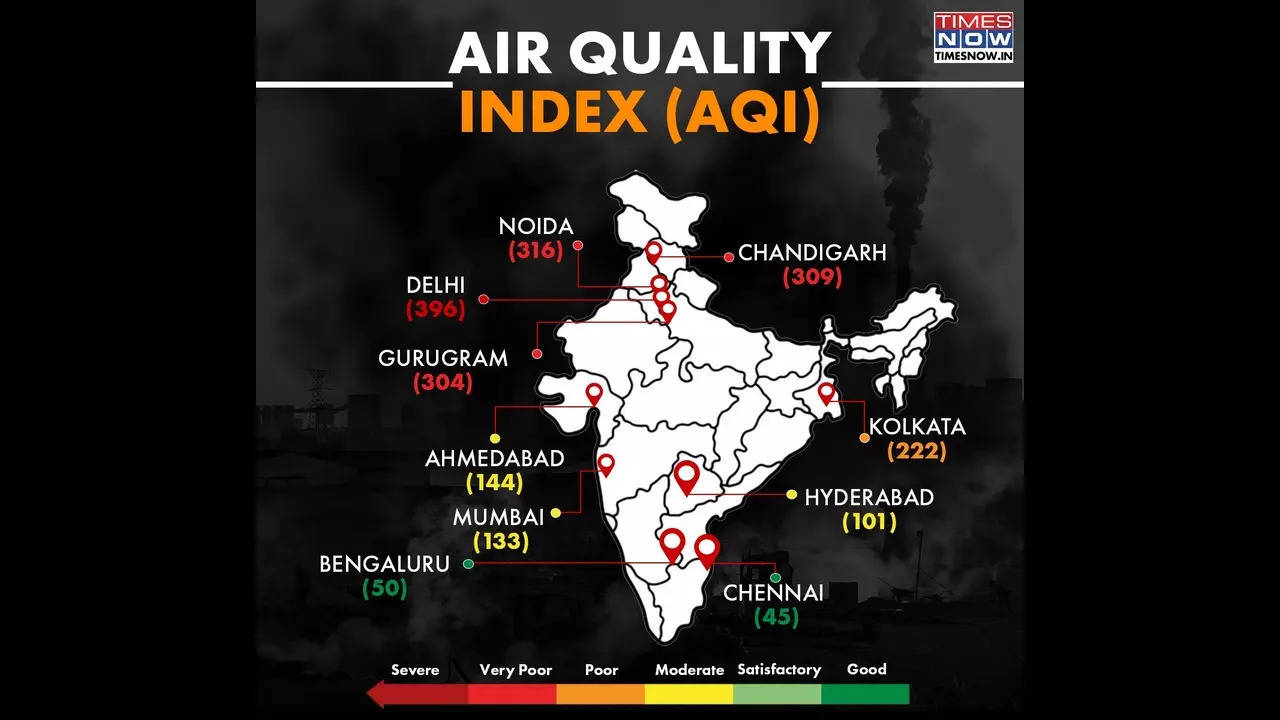Table of Contents

The Air Quality Index (AQI) in Delhi has been deteriorating rapidly, leading to smog-related concerns among residents. For the past few days, AQI levels have consistently remained either under 'Severe' or 'Very Poor' categories in key areas of the National Capital, placing Delhi at the top of the most polluted Indian cities.
According to the Central Pollution Control Board (CPCB), Delhi’s average AQI was recorded at 396 ('Very Poor') as of 4 PM on November 15. On Saturday, several areas in Delhi recorded AQI levels in the 'Severe' category, with Alipur at 433, Anand Vihar at 436, and Ashok Vihar at 438 as of 2 PM on November 16.
Chandigarh Faces Rising Pollution
Apart from Delhi, Chandigarh is also grappling with alarming air pollution levels. On Thursday (November 14), the city’s AQI surpassed 500, placing it in the ‘Severe’ category. The average AQI of Chandigarh was recorded at 309 (‘Very Poor’), as of 4pm on November 15, according to the CPCB data. Specific areas in Chandigarh also reported varying AQI levels on November 16, with Sector 22 at 258 (‘Poor’), Sector 25 at 314 (‘Very Poor’), and Sector 53 at 274 (‘Poor’) as of 2 PM.
Are Chennai and Bengaluru Safe Havens?
In stark contrast to Delhi and Chandigarh, Chennai and Bengaluru displayed significantly better air quality. The CPCB data revealed that Chennai’s average AQI was 45 ('Good') and Bengaluru’s AQI was 50 ('Good') as of 4 PM on November 15, showcasing these cities as safer havens amid rising pollution levels elsewhere.
AQI Levels in Other Cities
-Kolkata: AQI of 222 (‘Poor’)
-Noida: AQI of 316 (‘Very Poor’)
-Gurugram: AQI of 304 (‘Very Poor’)
-Ahmedabad: AQI of 144 (‘Moderate’)
-Mumbai: AQI of 133 (‘Moderate’)
-Hyderabad: AQI of 101 (‘Moderate’)
Restrictions in Delhi
To combat the worsening air quality, the Delhi government has implemented Stage-III of the Graded Response Action Plan (GRAP). Measures under GRAP Stage-III include:
– Vehicle Restrictions: Banning private BS III petrol and BS IV diesel vehicles.
-Interstate Buses: Prohibiting the entry of non-electric and non-CNG buses from other states.
-Construction Activities: Restricting certain types of construction work.
-Staggered Office Timings: Adjusting government office schedules to reduce traffic congestion.
(With inputs from PTI)

